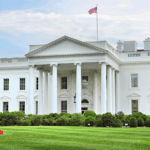Update 5/11/18: Attorney General Bob Ferguson issued a letter to Working Washington’s attorney stating, “After an initial assessment, we find there is no legal basis for invoking the ‘Intimidating a Public Servant’ provision of the Washington criminal code in this instance, based on facts set forth in the letter, nor would the facts meet the burden of proof and test of culpability necessary to support a criminal prosecution.”
Working Washington — a Seattle-based nonprofit spawned by the Occupy Wall Street movement in 2011 that’s both affiliated with and funded by SEIU — has a history of making dubious claims and using pressure tactics to achieve its goals.
But this time its outdone itself by claiming that Amazon has committed a crime — yes, a crime — by opposing the “head tax” under consideration by the Seattle City Council.
Working Washington is gathering signatures for a petition calling on Washington State Attorney General Bob Ferguson (D) to “prosecute Amazon for the felony of Intimidating a Public Servant to the fullest extent of the law.”
Such outlandish accusations are hard to take seriously.
The tax under consideration by the Seattle City Council would require businesses with gross annual revenue over $20 million to pay a tax of 26 cents for every hour worked by each of their employees. It would raise an estimated $75 million per year, ostensibly to combat homelessness, with around $20 million coming from Amazon alone.
An Amazon spokesperson told the Seattle Times last week that,
…pending the outcome of the head-tax vote by City Council, Amazon has paused all construction planning on our Block 18 project in downtown Seattle and is evaluating options to sublease all space in our recently leased Rainier Square building.
Because of this statement, Working Washington contends that Amazon has committed the Class B felony of intimidating a public servant.
The statute in question, RCW 9A.76.180, provides that, “A person is guilty of intimidating a public servant if, by use of a threat, he or she attempts to influence a public servant’s vote, opinion, decision, or other official action as a public servant.”
Members of the Seattle City Council are undoubtedly “public servants” for the purposes of the statute, but do Amazon’s statements and actions really constitute a “threat”?
RCW 9A.76.180 establishes that “threat” means: “(a) To communicate, directly or indirectly, the intent immediately to use force against any person who is present at the time; or (b) Threats as defined in RCW 9A.04.110.”
Amazon’s public announcement to pause construction on one of its projects clearly does not constitute “intent immediately to use force against any person who is present at the time,” so we must turn to the definition of “threat” in RCW 9A.04.110:
(28) ‘Threat’ means to communicate, directly or indirectly the intent:
(a) To cause bodily injury in the future to the person threatened or to any other person; or
(b) To cause physical damage to the property of a person other than the actor; or
(c) To subject the person threatened or any other person to physical confinement or restraint; or
(d) To accuse any person of a crime or cause criminal charges to be instituted against any person; or
(e) To expose a secret or publicize an asserted fact, whether true or false, tending to subject any person to hatred, contempt, or ridicule; or
(f) To reveal any information sought to be concealed by the person threatened; or
(g) To testify or provide information or withhold testimony or information with respect to another’s legal claim or defense; or
(h) To take wrongful action as an official against anyone or anything, or wrongfully withhold official action, or cause such action or withholding; or
(i) To bring about or continue a strike, boycott, or other similar collective action to obtain property which is not demanded or received for the benefit of the group which the actor purports to represent; or
(j) To do any other act which is intended to harm substantially the person threatened or another with respect to his or her health, safety, business, financial condition, or personal relationships…
Subsections (a) through (i) obviously do not apply to Amazon’s conduct. Consequently, Working Washington’s argument hangs on subsection (j).
Amazon’s construction pause surely does not harm anyone’s “health,” “safety” or “personal relationships.” Thus, Working Washington argues that the construction pause was “a threat to inflict substantial harm on the business and financial conditions of the city…”
But despite the best efforts of some of the city council’s more radical members, the city of Seattle does not generally own businesses. As an entity, however, the city of Seattle does have a budget and a “financial condition.”
Still, it’s not clear whether refraining from continuing to engage in a given action — construction on a particular development — constitutes “doing” an “action.” Seattle, after all, has no right or claim to Amazon’s continued presence in the city at all, much less a right to have the company complete a given project.
While continued Amazon development would undoubtedly be good for the city’s “financial condition,” it does not follow that failure to proceed with an unfinished development amounts to “inflicting harm”; it doesn’t make the city’s “financial condition” any worse than it is now.
Even if one accepts the flawed contention that Amazon’s construction pause constitutes “inflicting harm” on the city’s “financial condition,” Working Washington would also have to prove the harm from this single decision is “substantial” in its own right, a difficult task given the size of the city’s $5.6 billion annual budget.
Further, a “threat” involves “communicating” the “intent” to inflict harm. Amazon’s public acknowledgement that it had decided to pause construction communicated no intent to take any specific future actions; it announced an action that had already been taken. So far, Amazon has not publicly “communicated” its intent to take any specific actions in response to the head tax vote, regardless of the outcome.
As for intent, Working Washington would have to prove that Amazon’s decision to pause its development was “intended” to harm the city. Amazon could very easily argue that, whatever side effects it may have, the decision was made primarily to protect the company and not intended to punish the city.
Lastly, it’s not clear that RCW 9A.04.110(j) even applies to the city of Seattle.
Working Washington notes that the definition of “person” in RCW 9A.04.110(17) includes “any natural person and, where relevant, a corporation, joint stock association, or an unincorporated association” (emphasis added). Thus, Working Washington argues, RCW 9A.76.180 “protects municipal corporations such as the City of Seattle.”
Not so fast. The term “corporation” is not defined anywhere in Chapter 9A.04 RCW. Indeed, it is defined nowhere in Title 9A RCW, though the term is used periodically. However, every time the term is used in Title 9A RCW the context indicates it refers to private corporations — such as when RCW 9A.08.030 notes that “‘corporation’ includes a joint stock association” — not “municipal corporations.”
Elsewhere in state law, specific types of corporations are typically distinguished. “Corporation” is defined as “a corporation not for profit” for the purposes of the Washington Nonprofit Corporation Act and is defined as “a corporation for profit, including a social purpose corporation” for the purposes of the Washington Business Corporation Act. Similarly, the term “municipal corporation” is defined multiple different ways in various statutes. It is far from certain, then, that the term “corporation” for the purposes of Chapter 9A.04 RCW includes “municipal corporations” like the city of Seattle.
In light of these facts, it is highly unlikely that even Attorney General Ferguson — ever eager to burnish his progressive bona fides ahead of an anticipated gubernatorial bid — will take these allegations seriously. Instead, this appears to be just another attempt by Working Washington to silence those it opposes.











